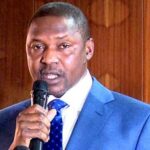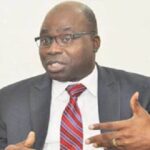The Civil Society Legislative Advocacy Centre (CISLAC) has said Nigeria losing about $18bn annually to illicit financial flows (IFFs) was due to the collusion of multinationals, foreign governments and their Nigerian collaborators.
Executive Director, CISLAC and Head Transparency International (TI) Nigeria, Mallam Auwal Musa Rafsanjani, said this on Wednesday in Abuja, at an IFFs conference tagged “Corruption in Arbitration”.
According to him, the loss was largely generated by tax evasion and fueled also by grand corruption, organised crime activities and many other licit and illicit practices.
He observed that though Nigeria might be an extreme case, the menace is replicated throughout Africa.
He noted that a recent United Nations (UN) panel calculated that for every one dollar gained through Foreign Direct Investment (FDI) and oversees development aid, Africa loses two dollars because of illicit financial outflows.
He added that corruption and gaps in investor-state arbitration was another area where Nigeria loses precious resources while most Nigerians live in abject poverty.
He cited the Process & Industrial Developments Limited (PID) arbitration case where Nigeria was ordered to pay the firm $6.6bn plus interest, saying that such inadequacy was possible because Nigerian public contracts, especially those in the resource sector, are shrouded in secrecy.
He said, “From the evidence available to us, it seems that no proper planning and tender process was conducted in a multi-billion-dollar deal.
“It is evident that the commercial terms of the agreement represented a catastrophic value for money from a Nigerian perspective. If Nigeria had had a clearer and more robust set of laws and processes around public procurement, such a deal would have never happened.
“Public procurement laws and procedures need to be upgraded, made unconditionally public and be rigorously enforced! Nigeria should also avoid signing up for Public Private partnerships that are not in the public interest.
“Government officials who decide about the fate of our economy do so without any accountability. Corruption thrives in secrecy. Unless all government contracts, especially those concerning the oil sector, are made public, we will continue to lose billions of dollars monthly due to corruption, incompetency, and international scams,” Rafsanjani said.
The Chairman, Economic and Financial Crimes Commission (EFCC), Mr. Abdulrasheed Bawa, said that IFFs in Nigeria is mainly perpetrated by corrupt leaders and their foreign accomplices and multinational companies.
Bawa, represented by the head of research unit in the commission, Mr. Abiodun Adebanjo, said that lack of transparency on the part of the countries where these monies are held to the countries where these monies are stolen from was a major challenge.
He said, “The situation we have seen in Nigeria is that corrupt government officials and their private sector collaborators use fronts and ownership structures that do not provide sufficient information about the true identities of the natural persons behind the title to hide illicit money and transfer same to safe heaven foreign jurisdictions.
“In Nigeria we see a case in which influential officials use their positions to pilfer government resources and extract maximum rent from the country’s mineral resources with minimum or no benefit to the citizens.
“In practical terms, billions of dollars are lost annually in royalties and fees for licenses which politically connected individuals appropriate to themselves using fronts and secret ownership arrangements. This deprives Federal Government huge amounts of monies needed for development.”
Buhari, Osinbajo alone can’t defeat corruption – PACAC
Also, the Executive Secretary, Presidential Advisory Committee against Corruption (PACAC), Mr. Sadiq Radda, said that the country would not make the much needed progress until corruption is defeated.
According to him, President Muhammadu Buhari and Vice Yemi Osinbajo cannot alone fight corruption.
Radda said that stakeholders, including the legislature, Judiciary, religious leaders and civil society organisation have roles to play in the fight against corruption and that there is no going back on anti-corruption war.
He said, “Nobody needs to be told that corruption has literally decimated our country and everybody is paying the price, therefore, fighting corruption is not a choice but a necessity. For future generation to have a country we have to work for them today and working for them requires to fight corruption.”

 Join Daily Trust WhatsApp Community For Quick Access To News and Happenings Around You.
Join Daily Trust WhatsApp Community For Quick Access To News and Happenings Around You.

